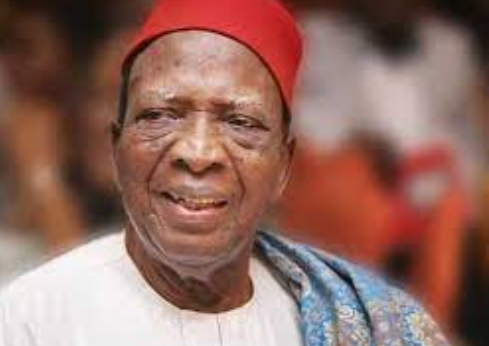THERE can be no gainsaying the fact that Prof.Nwabueze is one of our most distinguished academics; he regularly speaks out for what is right and for that he is admired in the country. But his recent 11-page paper titled Nigeria Needs A People’s Constitution, raises four troubling points that I thought should be interrogated.
He argued for a “People’s Constitution” stating that the 1999 Constitution is a military one. Fine! But didn’t he participate in drafting the 1979 Constitution? Wasn’t that also a Military constitution? Why did he participate in drawing up one then, but condemns a successor document, two decades later?
Prof. Nwabueze quoted Professor Sir Arthur Lewis out of context. Lewis used the quotation taken from Pg. 68 of the 1965 Whidden Lecture, titled Politics In West Africa, to validate an argument for federalism and consensus building, stating that Nigeria was perhaps the ONLY African country that can build American-type federalism in Africa.
But Prof. Nwabueze extracted Lewis to support an ethnic-based national conference and constitution-making. Thirdly, he stated that his PROJECT NIGERIA “is synonymous with the life of our dear nation”; furthermore, the group will draft a Bill to be “submitted to the presidency”.
We need a clarification on this, especially from the presidency, on the agenda of “Project Nigeria”. And what is the basis of the assumption that his group “is synonymous” with our country?
It is also troubling that the paper was presented at the NLC Headquarters, because Prof. Nwabueze’s ethnic-based argument contradicts the Pan-Nigerian, CLASS-based platform of the NLC. It is in fact a defeat of the well-choreographed, ethnic-based “People’s Constitution” view similarly posited by Chief Afe Babalola, as reported by The Guardian of Monday, December 12th, 2011.
The obsession by sections of the Southern Nigeria elite with constitution-making as panacea to Nigeria’s problems and by extension, delusions that such constitution must come with ‘restructuring’ Nigeria along ethnic lines, suffer at two critical levels.
Nigerian pre-colonial political units were historically Territorial not ethnic, so how to ‘restructure’ into ‘ethnic’ formations without historical antecedents, is not convincingly explained. The most ‘authoritative’ voice for that line belonged to the late Chief Anthony Enahoro.
He argued that the Ishan mind (his ethnic group) knew only the clan and tribe. Working from the Ishan ‘state of nature’ mindset, he attempted to carve Nigeria into ethnicities. But Nigeria’s history and those of the various peoples constituting Nigeria is far more complex than the late chief allowed for.
Similarly, those who romanticise pre-Independence constitutional platforms of the 1950s, conveniently forget that they were not platforms of “ethnic groups”, but of Nigerian political parties. The obsession of these leading lights of bourgeois Southern Nigeria about the nation’s political structure is so blind to issues of socio-economic injustice in the land.
Most people agree that the political structure is defective, yes; but why has the structure of socio-economic injustice escaped them? Was Nigeria’s political structure responsible for the depredations of SAP, championed by IBB and Chief Olu Falae?
Why have they refused to question the neoliberal capitalism which Obasanjo foisted on our country with its concomitants: privatisation and open theft of national assets; de-industrialisation; extremities of poverty amongst the majority and the creation of a few multibillionaires, cutting across ethnic groups?
Is political structure responsible for the fraudulent electoral process? Is the constitution reason for the demographic time-bomb that Nigeria perches on today, with 70 percent under the age of thirty and 45 percent under the age of 15?
How will a “People’s Constitution” solve problems associated with a dysfunctional neoliberal/neo-colonial capitalism? Will it create jobs? Leading lights of bourgeois Southern Nigeria must show us how their ‘People’s Constitution’ answers the serious problems which face Nigeria, beyond their simplistic ethnic-based solutions.
Interestingly, Prof. Nwabueze attempted to mobilise NLC in support of bringing “the ethnic groups together around a conference table”. But NLC has a historical superiority to Nwabueze’s obsession with ethnic groups; it unites Nigerian working people and leads them in struggle against socio-economic injustices. Injustices that “People’s Constitution” advocates apparently take as given!


